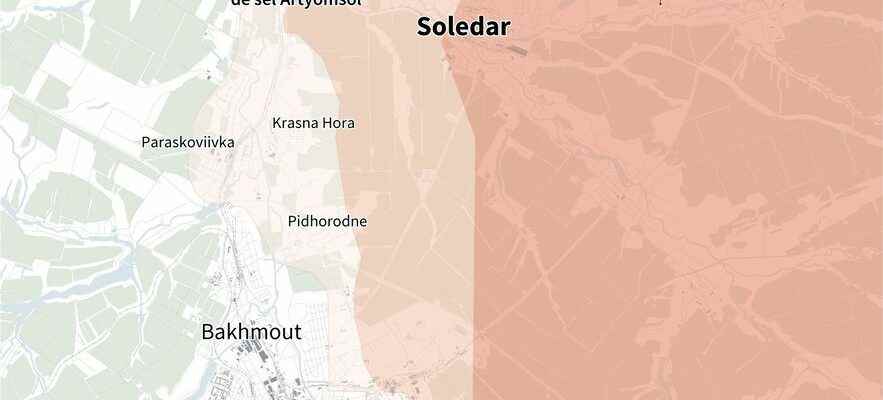Did Soledar fall into Russian hands? This small town located in eastern Ukraine, in Donetsk Oblast, where around 12,000 people lived before the war, is now the site of bitter fighting. However, the situation there remains unclear. In recent days, conflicting information has been circulating about the identity of those who control this largely destroyed city and where hundreds of civilians are trapped.
On January 11, the boss of the Wagner private militia, Evgueni Prigojine – whose forces are on the front line in this locality – claimed responsibility for the capture of the city. The latter was quickly contradicted by the Russian Ministry of Defense, which itself proclaimed the “liberation” of Soledar, which would have taken place according to him “on January 12 in the evening”.
For its part, kyiv denies any capture of the city. Ukrainian Deputy Defense Minister Ganna Maliar indeed assured on January 15 that the Ukrainian forces had held their positions. According to her, the small city is the scene of the “most fierce and violent fighting since the beginning of the conflict”. “The battle for Soledar, for Bakhmout, for the entire Donetsk region, for the Lugansk region continues without the slightest respite,” added Ukrainian President Volodymyr Zelensky, who evokes a territory covered in corpses.
Russian control more than likely
According to the Institute for the Study of War (a US analysis center), geotagged images from January 11 and 12 indicate that Russian forces likely control most, if not all, of Soledar and have likely pushed Ukrainian forces out of the western outskirts of the city . During an interview on Russian public television broadcast on Sunday, Vladimir Putin assured that “the dynamics are positive and everything is going according to the plans of the Ministry of Defense and the General Staff. I hope that our fighters will still delight us more than once with their military results”, he launched, after a question from a journalist from the Rossia-1 channel on the “news coming from Soledar”.
The capture of the city by Russian forces, if proven, would however have “no impact on the operational level”, estimates the Institute for the Study of War, which judges “unlikely” that their victory here “portends an imminent Russian encirclement of Bakhmout”. According to the Washington-based think tank, the capture of this city would be “at best a Pyrrhic Russian tactical victory”.
Ukraine: The Battle of Soledar
© / afp.com/Sylvie HUSSON
A “disproportionate relentlessness” of the Russians
Soledar is indeed far from being an objective for the Kremlin but rather a stage, as part of its objective to control the entire Donbass region. Its occupation would make it possible to attack Bakhmout from the North, and thus to take it in a vice, the Russian army being already deployed in the East and the South, explains to L’Express General Dominique Trinquand. Then, the fall of Bakhmout would open the way to Kramatorsk and Sloviansk, industrial cities located near the “people’s republics” of Donetsk and Lugansk, integrated into Russia in September by way of a referendum organized unilaterally by Moscow.
After a series of setbacks for Russia (kyiv, Kherson, etc.), the capture of Soledar would represent the greatest success for Moscow’s forces in months, although military analysts have warned of the limited strategic value of this. city.
“It is not an important communication node, the city does not allow Bakhmut to be taken, its salt mines are neither a treasure nor a means of infiltrating the front or forming a stronghold”, underlines on his blog Guillaume Ancel, former officer in the French Army and observer of the conflict in Ukraine. According to him, “the disproportionate relentlessness” of the Russians “compared to the interest of the target” is “an operational nonsense intended for the war of communication which is also engaged in this conflict in Ukraine”. A potential victory at Soledar would give Vladimir Putin “the illusion of success in a succession of failures”, he explains.
